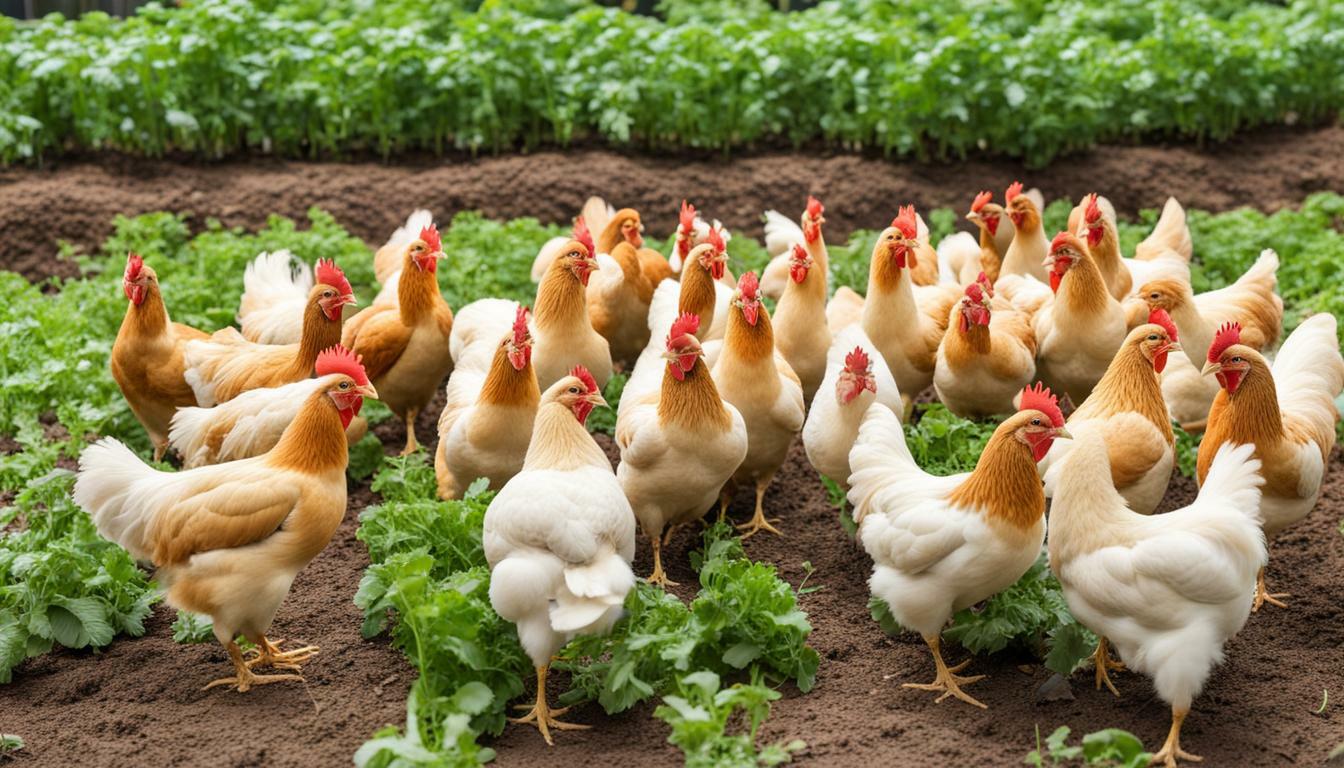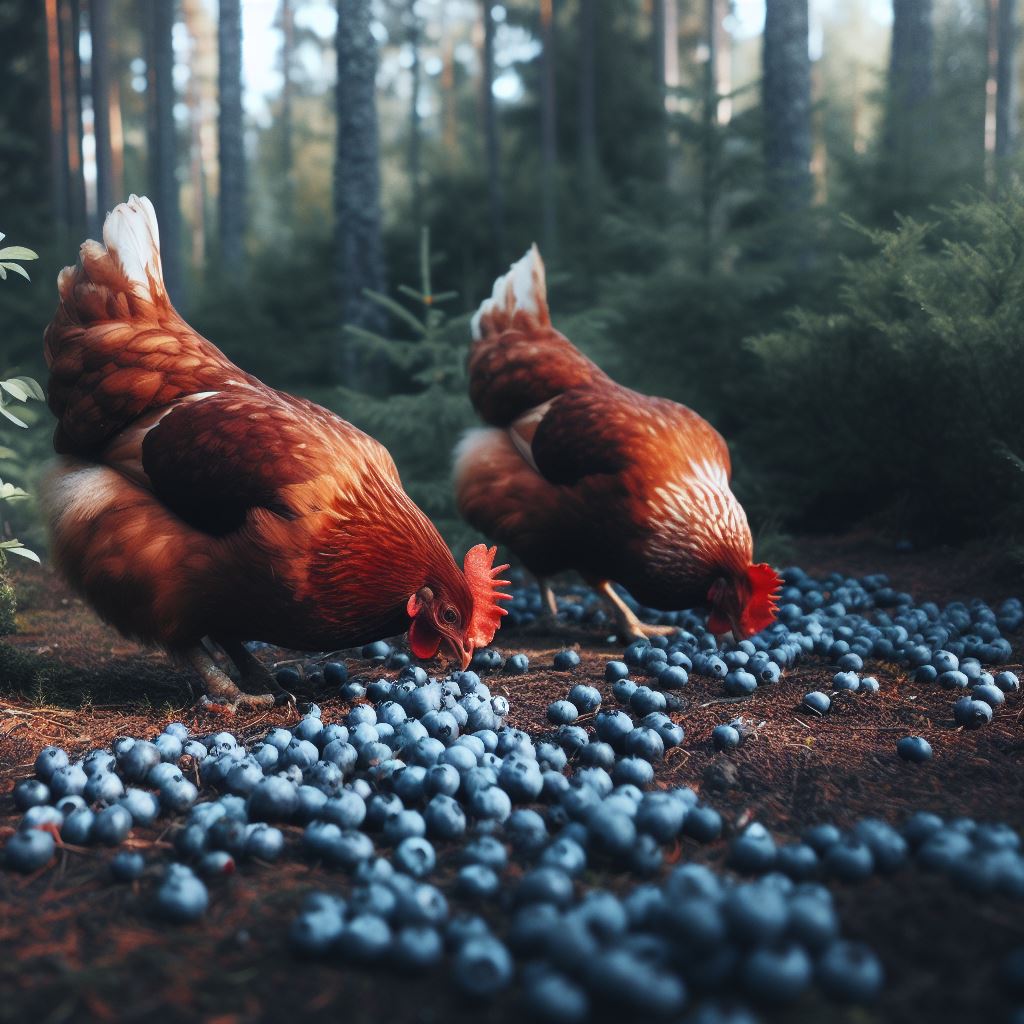Can Chickens Eat Okra? Discover the Nutritional Facts Today

Table of content:
Okra is a nutritious vegetable that can be a healthy addition to a backyard chicken’s diet. However, there are some important factors to consider before feeding okra to chickens. In this article, we’ll cover everything you need to know about feeding okra to chickens.
What is Okra?
Okra, also known as ladies’ fingers or gumbo, is a flowering plant in the mallow family. It is valued for its edible green flower buds and seed pods. Okra originated in Africa and is commonly used in soups and stews as a thickening agent.
Some key facts about okra:
- Botanical name: Abelmoschus esculentus
- Grows in warm, humid climates
- Pods are typically 3-6 inches long
- Can be green, red, or purple in color
- Has a mild flavor and mucilaginous texture
Okra is nutritious, being high in vitamin C, folate, magnesium, and fiber. It offers antioxidants and has some medicinal uses.
Is Okra Safe for Chickens to Eat?
Okra is safe and nutritious for chickens to eat. The seeds, leaves, stems, and pods of the okra plant all contain nutrients that can benefit chickens.
Okra provides vitamins A, C and K, as well as folate, magnesium, fiber, protein, iron, and calcium. These nutrients help support chickens’ immune systems, digestion, egg production, and overall health.
Some gardeners even grow okra specifically to feed their backyard chickens. Both the pods and leaves are relished by chickens.
Okra does not contain any compounds toxic to chickens. It is completely safe fresh or cooked.
So yes, chickens can safely eat all parts of the okra plant. It’s a healthy, natural treat for chickens.
Benefits of Feeding Okra to Chickens
Here are some of the main benefits of adding okra to a chicken’s diet:
Provides Nutrition
Okra is packed with vitamins, minerals, and antioxidants that are great for chicken health. Vitamin C, folate, and vitamin A are particularly beneficial.
Supports Egg Production
The folate in okra helps chickens produce eggs by aiding the development of RNA and DNA. It provides protein and calcium for strong eggshells.
Aids Digestion
Okra contains insoluble fiber that helps keep chickens’ digestive tracts working efficiently. This promotes good gut health.
Acts as a Probiotic
Compounds in okra may support good bacteria growth in a chicken’s digestive system, acting as a natural probiotic.
Supports Immunity
Okra’s antioxidants and vitamin C content help boost chickens’ immune systems to fight disease.
Provides Protein
Okra contains moderate amounts of plant-based protein. This amino acid protein helps chickens maintain and grow muscle.
So in summary, okra provides a variety of vitamins, minerals, antioxidants, and fiber that together keep chickens in good health and optimize egg production. It’s a nutritious treat.
How Should You Feed Okra to Chickens?
Okra can be fed to chickens in both its fresh and dried form. Here are some tips on feeding okra:
- Chop pods and leaves into small pieces to make them easy to eat
- Feed okra raw or cooked – both are fine
- Mix into chickens’ feed or serve okra pieces in a separate dish
- Leave whole pods in chicken runs and coops for pecking and foraging
- Dry okra pods and leaves to preserve for longer term storage and feeding
- Feed okra in moderation as part of a balanced diet
- Avoid spoiled or moldy okra
When first introducing okra, start slowly with small quantities and watch for any adverse effects. Providing chickens’ digestive systems time to adjust to new foods can help prevent any issues.
Monitor egg quality when feeding okra. The nutrients in okra do benefit egg production, but too much can sometimes cause soft-shelled eggs in some birds. Adjust quantities accordingly.
How Much Okra Can Chickens Eat?
Chickens can eat both the okra pods and leaves. About 2-3 okra pods per chicken per day is a good amount.
For the leaves and stems, feed around 1⁄4 pound per hen per day. Introduce gradually and divide into multiple small feedings.
Free-ranging chickens that forage for okra leaves and pods in the garden can consume somewhat more. Listen for crop fill cues.
Limit feeding whole okra pods to 2-3 times a week for best results. The other days provide a balanced diet without too much okra.
Never feed chickens only okra for extended periods of time. Okra should be just part of a varied diet. Look to meet all nutritional requirements.
Risks of Feeding Okra to Chickens
While okra is safe for chickens, there are a couple of risks to be aware of:
Soft Eggshells
Excess okra consumption could lead to thin or soft eggshells in some hens. This happens when the balance of calcium gets too high.
If eggs develop soft shells, cut back the okra and supplement with grit or oyster shell. The shells should return to normal within a few days.
Diarrhea
Any new food can cause loose droppings as chickens’ digestive systems adapt. Introduce okra slowly and in moderation to avoid diarrhea.
Make sure the okra is fresh. Spoiled okra can cause gut irritation and illness. Don’t allow chickens to eat moldy okra.
Allergies
It’s possible but uncommon for chickens to have an allergic reaction to okra. Watch for any signs like swelling or respiratory distress. Discontinue feeding okra if you suspect an allergy.
With proper introduction and feeding, okra poses very little risk to chickens. The benefits of its nutrition outweigh any minimal risks.
Can Chickens Eat Okra Leaves and Stems?
Yes, chickens can safely eat all parts of the okra plant, including leaves and stems.
The okra leaves contain high levels of vitamin A, vitamin C, calcium, magnesium, and protein. This makes them very nutritious as part of a chicken diet.
The stems also provide fiber and small amounts of nutrients. They are perfectly fine for chickens to consume.
Chickens that are free range in vegetable gardens will naturally nibble on okra leaves and stems. You can also chop them up to feed okra plant parts separately.
Offer a mix of the pods, leaves, and stems for balanced nutrition. Feeding only one part of the plant could lead to nutrient deficiencies.
So feel free to toss okra plant trimmings into the chicken pen to supplement their main feed. Just be sure to remove any spoiled vegetation.
Does Okra Provide Protein for Chickens?
Okra does contain plant-based protein that can contribute to a chicken’s protein intake. The protein content of raw okra is around 2 grams per 100 grams.
So while okra has protein, it is not an especially concentrated source compared to feeds like soybean meal or fish meal. The protein level is similar to most vegetables.
To put the okra protein in perspective:
- Soybean meal: ~44% protein
- Fish meal: ~60% protein
- Okra, raw: ~2% protein
The protein from okra leaves and pods is a nice bonus on top of the main protein sources in a chicken’s diet. But okra alone does not provide complete daily protein needs.
Make sure to supplement okra with higher protein chicken feeds, legumes, insects, fish, or meat scraps. Aim for at least 15-18% protein in the total diet for good egg production.
Final Thoughts
Okra can be a nutritious and safe addition to a backyard chicken diet. Its vitamin, mineral, and antioxidant content provides health benefits. Just be sure to introduce okra slowly and feed it in moderation along with other foods.
Follow the recommended feeding amounts, watching for loose droppings or other reactions. Limit okra to 2-3 times per week as an accent to a balanced diet. The pods, leaves, stems and seeds all pack nutrition chickens can utilize.
While okra leaves and pods make tasty, beneficial treats, they should not comprise the bulk of a chicken’s intake. Variety is key to good nutrition. Rotate other greens, vegetables, and high protein feeds to cover all dietary requirements. This will keep chickens happy and productive.
So in summary, yes chickens can and should eat reasonable amounts of okra as part of a diverse diet. Okra provides excellent nutritional variety to support chicken health. Just remember moderation and balance for the best results. Let your flock enjoy this summery Southern staple!
Welcome. I’m Adreena Shanum, the proud owner of this website, and I am incredibly passionate about animals, especially poultry. I founded adreenapets.com as a labor of love, stemming from my desire to share my knowledge and experiences with poultry enthusiasts worldwide.




